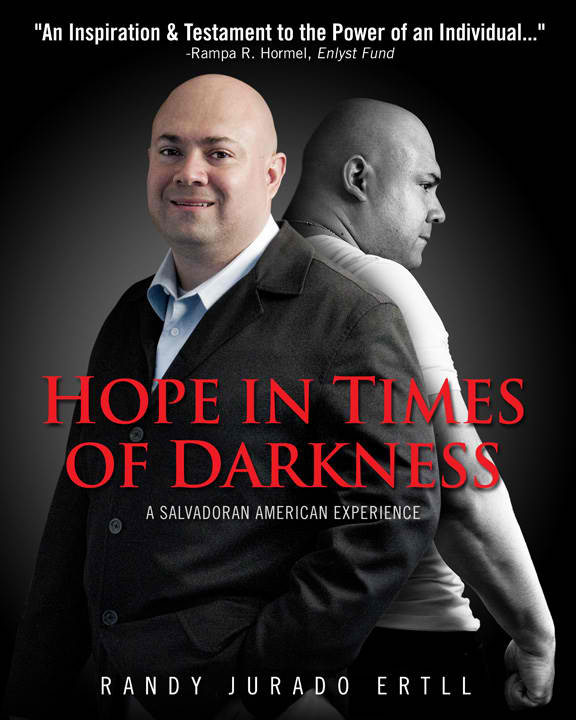The inner city was my neighborhood. In the 1980s, when I was attending junior high school in South-Central Los Angeles, gang violence was common and respect for teachers was absent. Being a victim of senseless street conflict was something I worked to avoid.
I immersed myself in books, in reading and writing. My first triumph was in eighth grade. I won a school essay contest and $100 was the prize. My subject was George Washington Carver. My mother was quite proud of my writing achievement.
And it was an achievement. I was born in Los Angeles. When I was 8 months old, U.S. immigration agents arrested my mother and deported her back to El Salvador. She had no choice but to take me with her. We didn’t return until I was 5. At school I was considered an immigrant. It wasn’t until the fourth grade that I learned to read and write in English since I was in the bilingual program. I learned how to read and write in Spanish first.
In junior high school the so-called smart students were invited to attend a workshop about a national program called A Better Chance, or ABC. It provided scholarships for students to attend excellent schools far from the inner city. It was during a time when I felt pressured, by others, to join various gangs. I was fortunate that I did not. I saw ABC as my big opportunity to escape, and I applied to Deerfield Academy in Massachusetts, as far away as I could go.
ABC sent me a typed letter saying I wasn’t selected. I wrote back, in longhand, asking why. It had created and then crushed my hope, I wrote. Save me, I pleaded. ABC officials phoned me. The conversation is still vivid in my memory. They said I was accepted into the program after all and could attend high school in Rochester, Minnesota.
The airplane ticket arrived and I was gone. I left my mother and two sisters behind. That was heartbreaking. As the family’s only boy, I saw myself as its protector.
Except for one Mexican American boy from East Los Angeles, my housemates in Minnesota were nearly all African American. We went through difficult times learning to accept one another. In the 1980s, in South-Central L.A., blacks and Latinos competed for scarce economic and political resources, but at John Marshall High School in Rochester we learned to care for and respect each other. I grew close to my house directors, who were white. Ethnicity didn’t matter.
As a senior in 1991, I read a pamphlet that said Occidental College, in the Eagle Rock area of Los Angeles, placed an emphasis on learning about multicultural issues. I applied and was accepted. Majoring in politics with a minor in Spanish, I graduated from Occidental with distinction in 1995. Recently, I was blessed to have received the 2015 Occidental College Alumni Seal Award for Service to the Community.
Now I think back to that critical stage in my life when the ABC program removed me from my environment to prepare me to attend college, to succeed. It assured me I had the capacity to do it. No one could make me feel inferior. In a nation built by immigrants, I learned to find pride in my immigrant family.
A Better Chance turned some of my dreams into reality. I became a role model in my family and my community. I worked in the environmental movement, in immigrant rights advocacy and in Washington D.C. as a communications director and legislative assistant to former Congressional member Hilda L. Solis (D-El Monte). She is now a member of the Los Angeles County Board of Supervisors. Each of these experiences helped shape who I am today.
Now I am also teaching. Many of the students I see daily remind me of myself when I was going through similar struggles. The job of public school districts is to offer them a better chance, a quality education and hope, without their having to travel halfway across the country.
Let us applaud A Better Chance (ABC) for saving and improving thousands of lives!
Randy Jurado Ertll, author of the novel The Lives and Times of El Cipitio that can be found at some COSTCO locations, AMAZON or Wal-Mart. His web-site is WWW.RANDYJURADOERTLL.COM

